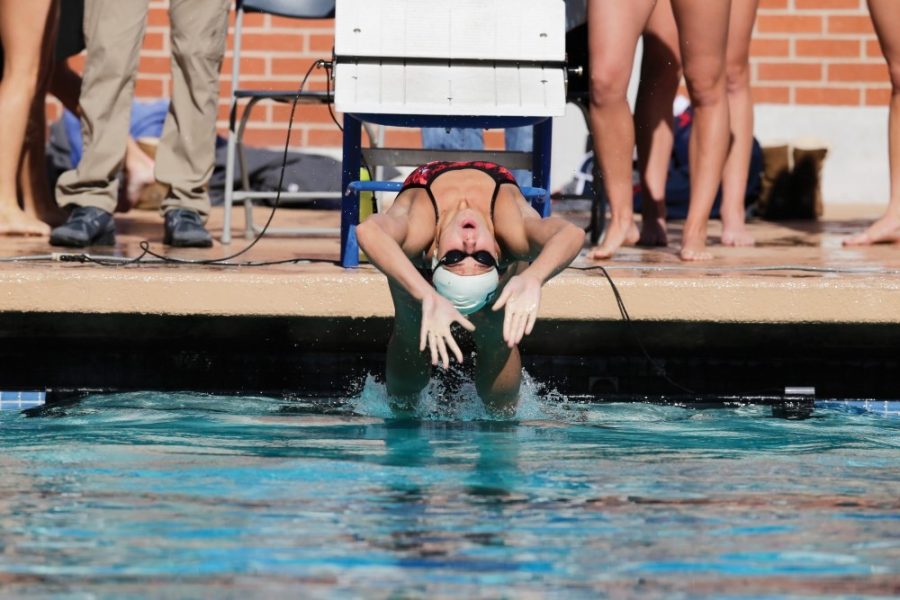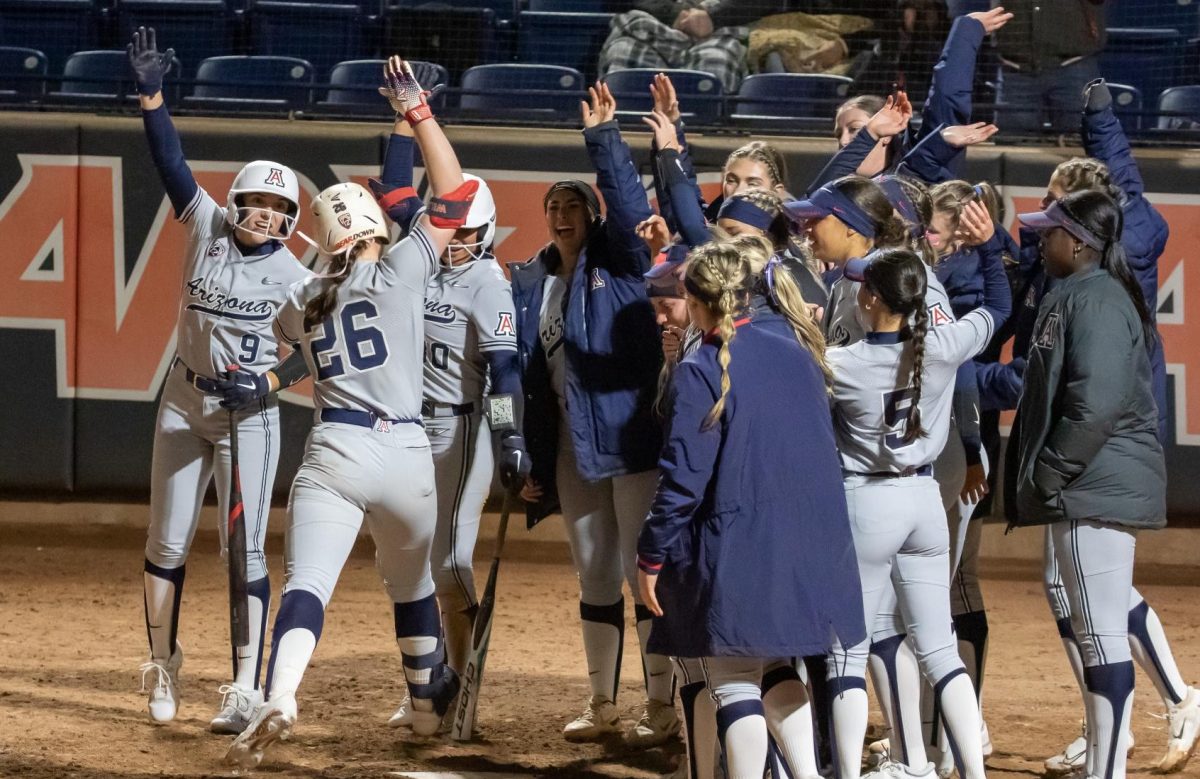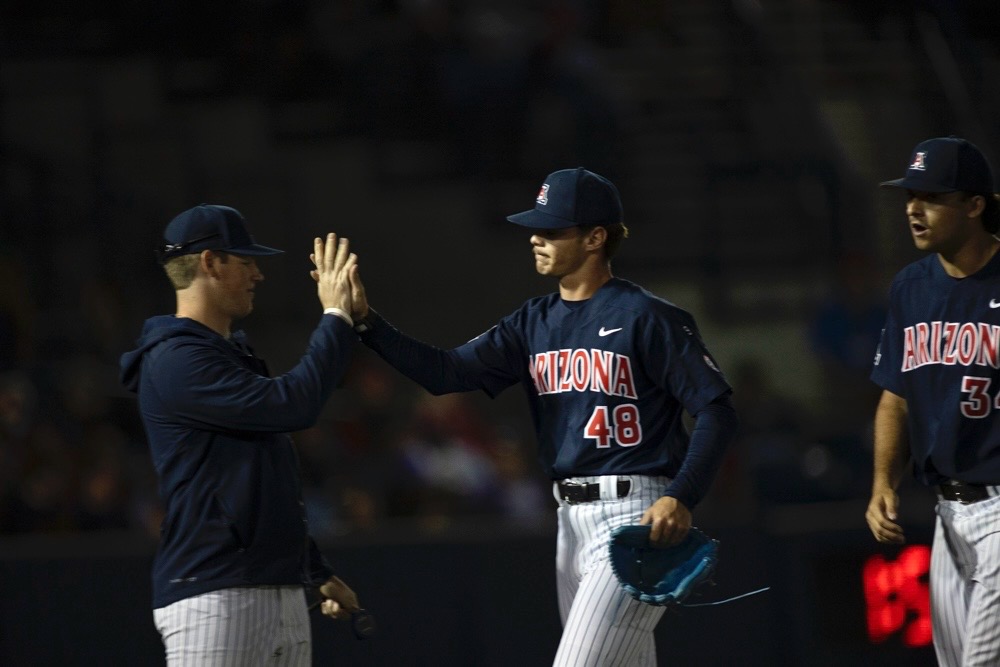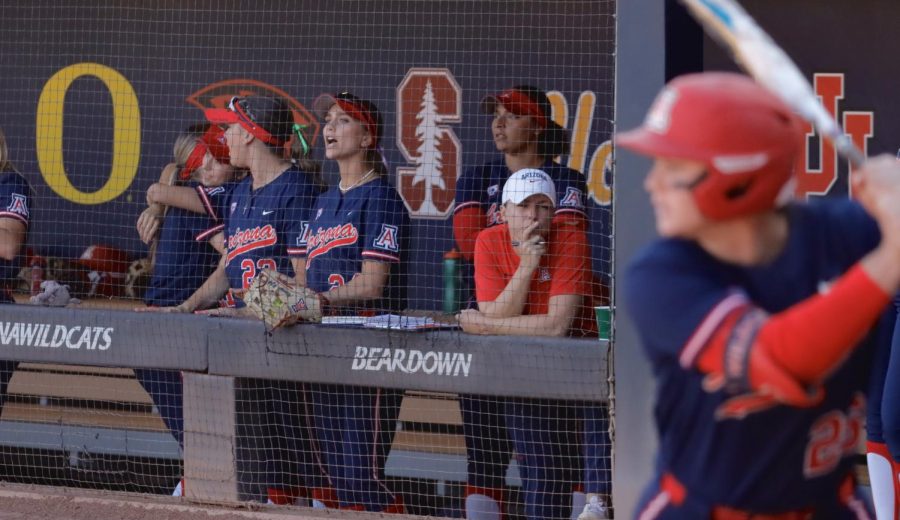Katrina Konopka may not lace up track spikes in the spring or put on shoulder pads in the fall, but one thing is certain: She’s fast. The junior swimmer is one of the best freestyle and backstroke swimmers in the country, if not the world, and in three years at Arizona, she has already left behind an impressive legacy.
In 2016, Konopka swam the 50-meter freestyle in the Olympic Trials and placed fifth against former medalists and some of the best swimmers in the country.
“I remember feeling so relaxed before that race,” Konopka said. “Like right before the start, I mean there were 20,000 people in the stands, but I just heard a few people in my team and it helped me calm down so much.”
Konopka was only two places and 0.4 seconds away from going to the Olympics in 2016, in what she said was the “best race of her life.”
Instead of going to Rio, however, Konopka represented Team USA last year at the World University Games in Taiwan in the summer of 2017 and won a bronze medal in the 50-meter freestyle.
Taiwan wasn’t Konopka’s first experience swimming internationally; She’s been swimming for Team USA since 2014, when she was on the Junior National Team. In 2015, she helped set a junior world record in the 4×100-meter freestyle relay, aside from finishing second in the 50-meter freestyle at the Junior National Championships and winning a YMCA national championship with her YMCA swim team from Greenville, South Carolina.
Konopka made her first connection with the University of Arizona in the YMCA program through former Wildcat swimmer and three-time NCAA champion Margo Geer.
“I remember when I was younger I used to swim for the [YMCA], and Margo held all of the national records,” Konopka said. “So I was always chasing Margo, always trying to beat her times. And then I finally got to race with her, and swim with her, and it was super cool. We’re actually really good friends now.”
Geer was, and still is, one of Konopka’s biggest influences in the swimming world. She also specialized in the 50-meter freestyle, like Konopka, and continues to train with the Arizona swim team.
With Geer’s help, Konopka has changed drastically as a swimmer since she first came to UA. She used to swim in long-distance events before college, too, so one of the biggest things in reforming her stroke was learning breath control.
“My stroke went through a major change,” Konopka said. “I used to breathe a lot, and now I for sure don’t breathe as much. We definitely cut out a lot of air.”
Konopka still has a lot of time, and some unfinished business, left at Arizona before she leaves after next season. The junior swimmer qualified for the NCAA Championships in seven events last season, but has yet to win one.
However, even with the NCAA and the Pac-12 Championships both taking place in under a month this season and expectations placed upon her, Konopka said she wasn’t stressed or worried about winning any races. In fact, her goals for this season were rather selfless in what might be one of the most competitive individual sports.
“Yeah, I of course want to set some personal bests and improve my times from last season, just like anybody,” she said. “But, more importantly, I want to know that what I did was for my team.”
Konopka is the definition of a team player. She has a habit where, before every swim, she looks at a teammate to help calm her down.
“There’s no better feeling than having someone on the sideline cheer for you,” Konopka said. “So when I swim, I always want to be there for them.”
Positivity is also huge for Konopka to keep her motivated in swimming and in everyday life. She enjoys going to class and excels in chemistry, her major, one of the most difficult departments here on campus.
“I actually like it,” Konopka said, smiling about her inorganic chemistry lab later that afternoon. “Trust me, it’s way better than physics.”
Emphasizing the good in things is how Konopka swims and how she lives.
“Always find something positive in life,” Konopka said. “In every race, at every practice, you had to do at least one thing right, even if it was just showing up on time, and if you focus on the positive, it makes college swimming a lot more fun.”
Follow Ian Tisdale on Twitter









